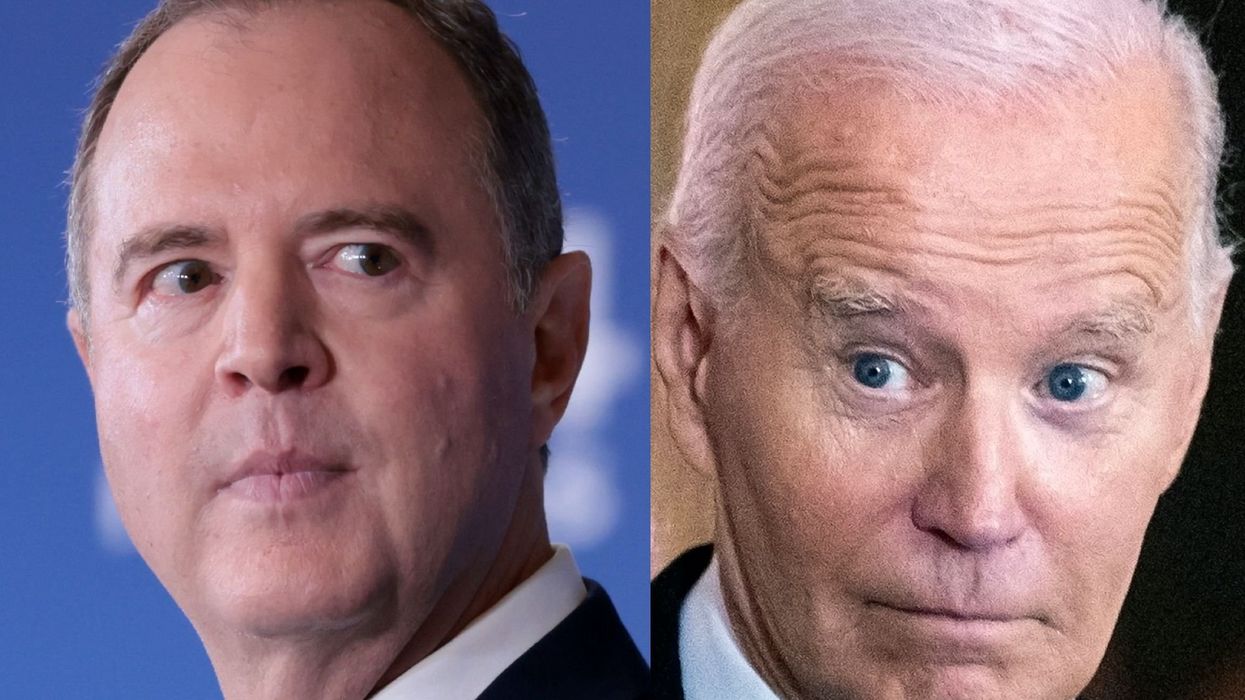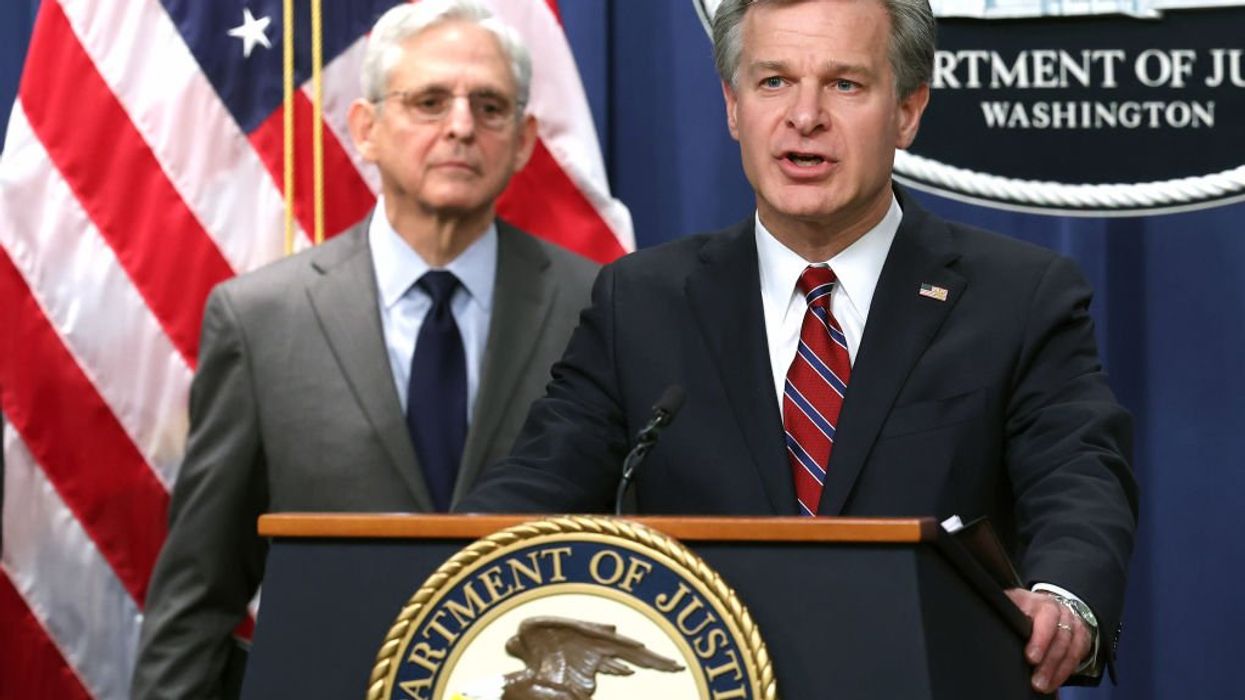Ebola might not be considered an outbreak in the United States, but with hospitals around the country preparing in case the deadly disease were to enter their town, it begs the question: If there were a risky, infectious disease flare-up of any kind, would health care employees still show up to work?
According to recent studies, a significant number of those we all rely on for help during illnesses might choose not to work if a disease were running rampant.
A study published four years ago in the journal BMC Public Health revealed that 32 percent of hospital workers said they would be "unwilling to respond in the event of a more severe pandemic influenza scenario."
 Registered nurse Keene Roadman, stands fully dressed in personal protective equipment, as he and registered nurse Fred Serafin, right, demonstrate proper protective procedures to doctors and nurses during a training class at the Rush University Medical Center. With hospital workers increasingly in the spotlight of concern over the spread of the Ebola virus, the hospital held a training session for a team of medical professionals with expertise in intensive care and infection control. (AP/Charles Rex Arbogast)
Registered nurse Keene Roadman, stands fully dressed in personal protective equipment, as he and registered nurse Fred Serafin, right, demonstrate proper protective procedures to doctors and nurses during a training class at the Rush University Medical Center. With hospital workers increasingly in the spotlight of concern over the spread of the Ebola virus, the hospital held a training session for a team of medical professionals with expertise in intensive care and infection control. (AP/Charles Rex Arbogast)
Dr. Daniel Barnett, an associate professor of environmental health sciences at Johns Hopkins Bloomberg School of Public Health who was involved with this study, told TheBlaze that we're already seeing some of this sentiment with the current Ebola situation.
"I hope it’s not the tip of the iceberg," he said. "I do think that this is, if not the tip of the iceberg for Ebola, it certainly represents the tip of iceberg for potential scenarios of future influenza pandemics. This represents a teachable moment for us nationally and globally."
Some countries in West Africa saw strikes among health workers who felt like they were not being adequately compensated for the hazard they face in the Ebola outbreak. In the U.S., Dallas officials initially had a hard time finding a cleanup crew equipped and willing to take on the task of the apartment where the first U.S. diagnosed Ebola patient stayed and became infectious. In Spain, employees used a variety of excuses to avoid coming to work.
“They are saying they’ve got their period, that they’re getting dizzy, that they’re claustrophobic … people get anxious and they can’t work like that, being so nervous," a health worker told the newspaper El Pais, according to The Guardian.
Research conducted by Johns Hopkins in cooperation with their colleagues at Ben-Gurion University of the Negev in Israel, not only revealed the extent to which health workers might be willing to risk their lives, but also what can be done to improve the likelihood that they'll be there to help in the event of a pandemic or other dangerous health situation.
"Willingness to respond is not the same as ability to respond," Barnett said.
 Liberian health workers queue to enter one of the largest Ebola treatment units at the Island Clinic Monrovia ,Liberia. Monday, Oct. 13, 2014. Some nurses in Liberia defied calls for a strike on Monday and turned up for work at hospitals amid the worst Ebola outbreak in history. In view of the danger of their work, members of the National Health Workers Association are demanding higher monthly hazard pay. (AP Photo/ Abbas Dulleh)
Liberian health workers queue to enter one of the largest Ebola treatment units at the Island Clinic Monrovia ,Liberia. Monday, Oct. 13, 2014. Some nurses in Liberia defied calls for a strike on Monday and turned up for work at hospitals amid the worst Ebola outbreak in history. In view of the danger of their work, members of the National Health Workers Association are demanding higher monthly hazard pay. (AP Photo/ Abbas Dulleh)
"Training someone who to wear [personal protective equipment] does not necessarily mean that person will be willing to come to work to wear that PPE," he added. "We historically made an assumption that training someone in knowledge and skills will translate to a willing workforce response and that is a mistaken assumption."
In the 2010 study, all hospital departments reviewed saw some employees show an unwillingness to work in a pandemic situation. But nurses, it found, were even less likely than doctors to want to come in to work. Those who said they would be hesitant to work additional hours were also 17 times less likely to respond during a health crisis.
While an unwillingness to respond was tracked, willingness was reviewed as well, revealing some factors that could help change the minds of other health workers who would otherwise stay home in the hope of protecting themselves and their families.
The study found that 60 percent of workers who thought their peers would come to work in an emergency were then 10 times more likely to say they'd show up themselves. If an employee saw themselves as having high efficacy, which Barnett explained meant confidence in their abilities, he or she was nearly six times more likely to respond to help.
"Health workers need to have a clear sense that they, individually, play a significant role in the context of the overall response," Barnett said, explaining that some people, like a receptionist, for example, might not really see how vital his or her role would be in such an event.
 Registered nurse Keene Roadman, fully dressed in personal protective equipment, simulates treating a patient with Ebola, to doctors and nurses who are part of the core care team that would treat Ebola patients, during a training class at the Rush University Medical Center. (AP/Charles Rex Arbogast)
Registered nurse Keene Roadman, fully dressed in personal protective equipment, simulates treating a patient with Ebola, to doctors and nurses who are part of the core care team that would treat Ebola patients, during a training class at the Rush University Medical Center. (AP/Charles Rex Arbogast)
"The other part of training that needs to be factored into the preparedness picture is giving employees a sense of confidence that they can perform their roles effectively," he said.
Other factors, that can boost health care worker willingness to respond include having plans for their families, providing an adequate amount of personal protective equipment and offering the appropriate vaccines or beneficial drugs for all the hospital's employees.
Taking it a step further in another study, Barnett and his colleagues showed how certain types of training can increase a willingness to respond by 30 percent. This study, published in the journal Heath Communications last year looked at health department workers willingness to respond in the event of a radiological dirty bomb.
"That is actually a significant increase when you consider an all-hands-on-deck kind of response," Barnett said of the effect training can have.
"Ebola is not the only threat that is out there," Barnett said. "There's MERS, H7N9, H5N1 ... all of these threats still exist even if Ebola, hopefully, does not materialize into a type of widespread event in U.S. We are not out of woods in terms of our readiness [when it comes to] other threats that are concurrent and may materialize in our country."
In light of the U.S. response to Ebola within its border, Barnett said we are in the midst of a "teachable moment for preparedness training."
"We need to take a more holistic approach in training heath care workers. Not only train them in what to do, but we also need to factor in their perspective as human beings who are facing a frightening scenario," he said.
"We need to consider training not just to knowledge and skills ... but also to address attitudes," he said.

 Registered nurse Keene Roadman, stands fully dressed in personal protective equipment, as he and registered nurse Fred Serafin, right, demonstrate proper protective procedures to doctors and nurses during a training class at the Rush University Medical Center. With hospital workers increasingly in the spotlight of concern over the spread of the Ebola virus, the hospital held a training session for a team of medical professionals with expertise in intensive care and infection control. (AP/Charles Rex Arbogast)
Registered nurse Keene Roadman, stands fully dressed in personal protective equipment, as he and registered nurse Fred Serafin, right, demonstrate proper protective procedures to doctors and nurses during a training class at the Rush University Medical Center. With hospital workers increasingly in the spotlight of concern over the spread of the Ebola virus, the hospital held a training session for a team of medical professionals with expertise in intensive care and infection control. (AP/Charles Rex Arbogast)

 Registered nurse Keene Roadman, fully dressed in personal protective equipment, simulates treating a patient with Ebola, to doctors and nurses who are part of the core care team that would treat Ebola patients, during a training class at the Rush University Medical Center. (AP/Charles Rex Arbogast)
Registered nurse Keene Roadman, fully dressed in personal protective equipment, simulates treating a patient with Ebola, to doctors and nurses who are part of the core care team that would treat Ebola patients, during a training class at the Rush University Medical Center. (AP/Charles Rex Arbogast)


